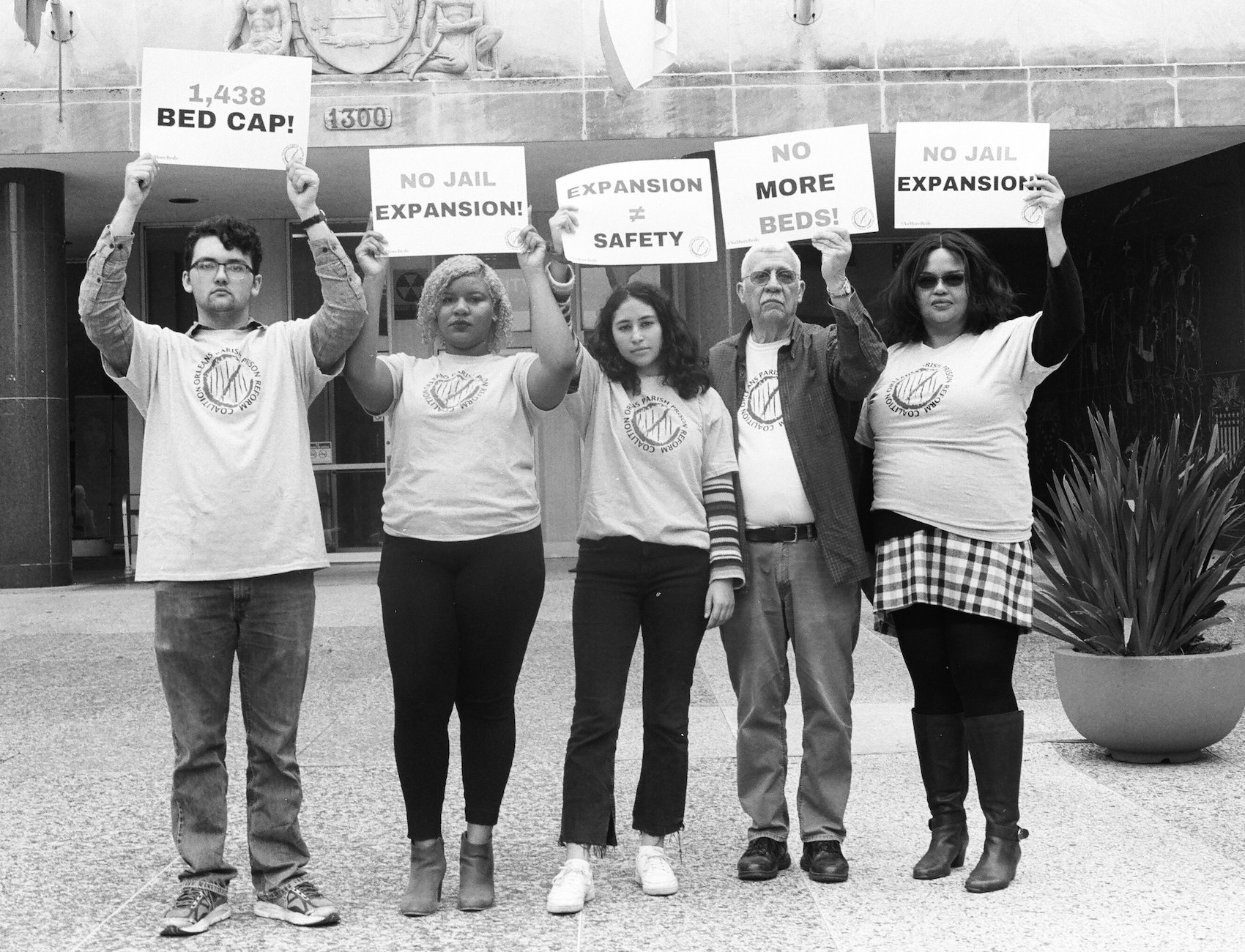New Orleans Advocates Oppose Jail Expansion Plan Ahead of Public Hearing
Increasing the city’s jail capacity will lead to higher incarceration rates, advocates say.

A plan by the sheriff’s office to expand the New Orleans jail will lead to more incarceration in a city whose jail population and crime have decreased, say reform advocates who oppose the proposal.
The city planning commission, which makes recommendations to the City Council on land use proposals, is scheduled to hold a public hearing on the expansion application Tuesday. Last week, the commission’s staff released a report recommending that the nine-member commission approve the proposal.
The plan, submitted in August by Sheriff Marlin Gusman’s office, proposes increasing the city’s jail population cap. The proposal also would expand a temporary facility to house people with mental health conditions, as well as 150 state prisoners who are on work release or are kitchen workers.
For months, advocates have opposed the plan, saying the city should invest in affordable housing, education, and healthcare services, and renovate the existing jail, the Orleans Justice Center.
The sheriff’s plan “would mean that New Orleans has decided to take a step back,” said Sade Dumas, the executive director of the Orleans Parish Prison Reform Coalition. “We’ve been on a path of progress to decarcerating the city.”
Gusman has said the plan is necessary to provide space for prisoners with mental health needs. The proposed space is part of Gusman’s constitutional obligation to provide humane jail conditions. Orleans Justice Center holds a daily average of 1,200 prisoners.
The plan comes after a federal judge in March ordered the city to renovate the Temporary Detention Center to house mentally ill prisoners. The city previously housed these prisoners at a state prison outside the parish, but that agreement expired this month.
The judge’s order was in response to a 2013 agreement between the city and the U.S. Department of Justice to address myriad problems at the jail. As part of that agreement, the government mandated that city officials improve services and create a housing plan for prisoners with mental health needs.
The Temporary Detention Center was built in 2012 to house prisoners who could not be placed elsewhere because of damage from Hurricane Katrina, and was set to be demolished in March 2017, after Orleans Justice Center was built. The detention center renovation will cost the city $4.5 million to $5 million, according to reports.
The sheriff’s plan would also increase the city jail’s capacity from 1,438 beds to 1,731-beds. Adding more beds to the facility will lead to higher incarceration rates, Dumas said. “We can’t trust the sheriff with extra beds,” she said.
A spokesperson for the Orleans Parish Sheriff’s Office did not respond to requests for comment.
Jail officials say the Temporary Detention Center will be demolished once the city builds a new 89-bed facility, in addition to the Orleans Justice Center, where people with mental health needs will be incarcerated. Advocates say that people should be sent to treatment centers instead of the jail, which has struggled to help prisoners with mental health conditions.There were 63 suicide attempts in the first six months of this year.
Additionally, kitchen workers and people on work release will be moved to a separate wing within the Orleans Justice Center once the population decreases enough to make room.
Andrea Armstrong, a Loyola University law professor who has studied the history of New Orleans jails, told The Appeal that the city’s previous attempts to solve problems within its jails with new buildings weren’t effective. “What the history of incarceration in New Orleans shows is that new facilities haven’t always resulted in significant improvement in the conditions in which we incarcerate people,” she said.
The city’s jail conditions improved when it focused on hiring, training, and retaining jail staff, said Armstrong. “If the goal is to make those conditions constitutionally adequate, then the plan to achieve that goal has to be more than a new building,” she added.
Orleans Parish jails have long been troubled. The city’s former jail, the Orleans Parish Prison, was the largest in the country, holding 7,000 beds. In 2012, it was at the center of a lawsuit filed by the Southern Poverty Law Center that alleged violence, abuse, staffing shortages, and inadequate medical care at the facility. That same year, the Department of Justice decried its “unacceptable and dangerous” conditions.
Between May 2010 and October 2019, New Orleans’s jail population dropped to nearly one-third of 3,400 prisoners. A 2018 report by the city credited the decrease to improved policies within the jail, better pretrial release efforts, and changes in policing.
Violent crime rates in New Orleans have dropped significantly in the last two years. New Orleans may experience a 30 percent decrease in murders this year, according to a Louisiana State University professor.
Following Tuesday’s hearing, the city planning commission will make a recommendation to the City Council on whether to approve the plan. Council members will vote on the proposal approximately 45 days after the commission’s decision.
